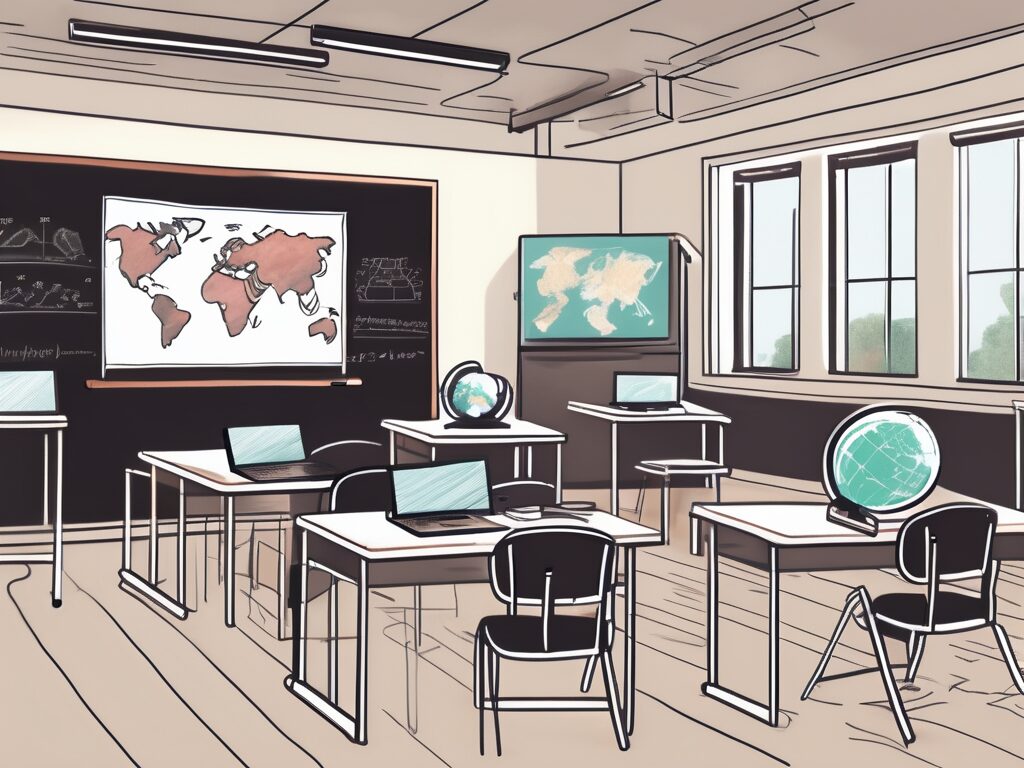The International Postgraduate Certificate in Education (IPGCE) is a highly esteemed qualification that equips students with the skills and knowledge to become effective educators. The programme is designed to foster a deep understanding of pedagogical theories and practices, enabling students to deliver high-quality education in diverse settings. In this article, we will delve into the ways students learn in the IPGCE, focusing on how they build knowledge.
Understanding the IPGCE
The IPGCE is a rigorous programme that combines academic study with practical teaching experience. It’s a bit like learning to drive a car; you need to understand the theory before you can get behind the wheel. In the case of the IPGCE, the theory involves understanding how students learn, the principles of effective teaching, and the role of assessment in education.
The practical aspect of the programme involves teaching practice in a school setting. This is akin to the driving lessons in our car analogy. It’s where students get to apply what they’ve learned in a real-world context, honing their skills and gaining invaluable experience.
Building Knowledge in the IPGCE
Building knowledge in the IPGCE is a multifaceted process. It’s not just about memorising facts or theories; it’s about understanding how these pieces of information connect and how they can be applied in a teaching context. It’s a bit like constructing a jigsaw puzzle; each piece of information is important, but it’s the way they fit together that creates the overall picture.
One of the ways students build knowledge in the IPGCE is through academic study. This involves reading and analysing educational research, participating in seminars and workshops, and completing assignments. It’s a bit like the research phase of a project; you’re gathering information and learning about different perspectives.
Practical Experience
Another key aspect of knowledge-building in the IPGCE is practical experience. This involves teaching practice in a school setting, where students can apply what they’ve learned and gain firsthand experience of the challenges and rewards of teaching. It’s a bit like the implementation phase of a project; you’re putting your plans into action and seeing the results.
During their teaching practice, IPGCE students are supported by experienced mentors who provide feedback and guidance. This mentorship is a crucial part of the learning process, helping students to reflect on their practice and make improvements. It’s a bit like having a coach in sports; they can provide insights and advice that help you to improve your performance.
Reflection and Evaluation
Reflection and evaluation are also key components of knowledge-building in the IPGCE. Students are encouraged to reflect on their teaching practice, considering what worked well and what could be improved. This reflection is then used to inform future practice, helping students to continually develop their teaching skills. It’s a bit like the review phase of a project; you’re looking back at what you’ve done, learning from it, and using this knowledge to improve future performance.
Students also engage in peer evaluation, providing feedback on each other’s teaching practice. This not only helps students to develop their critical evaluation skills, but also fosters a collaborative learning environment. It’s a bit like working in a team; everyone has a role to play, and by working together, you can achieve more than you could individually.
Conclusion
The IPGCE is a comprehensive programme that equips students with the knowledge and skills to become effective educators. Through a combination of academic study, practical experience, and reflective practice, students build a deep understanding of pedagogical theories and practices. It’s a bit like building a house; each element is important, but it’s the way they come together that creates a strong and effective structure.
Whether you’re considering a career in teaching or are already working in the field and looking to enhance your skills, the IPGCE offers a robust and rewarding learning experience. It’s a bit like embarking on a journey; there may be challenges along the way, but the rewards are well worth the effort.
Advance Your Teaching Career with The IQTS at UWE
Ready to elevate your teaching credentials and overcome the barriers to international education success? Join the ranks of educators who are enhancing their professional development with The International Qualified Teacher Status (iQTS) programme at UWE. With the iQTS, you’re not just gaining a qualification; you’re boosting your interview callbacks, increasing your chances for promotion, enhancing your salary prospects, and connecting with a global network of professionals. Don’t let isolation or a lack of understanding of international curricula hold you back. Make Your Next Step towards a fulfilling career in education by enrolling in a programme that fits around your busy schedule and sets you on the path to becoming a globally recognized educator. Join the iQTS programme now and start building a stronger foundation for your future.

